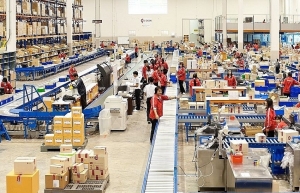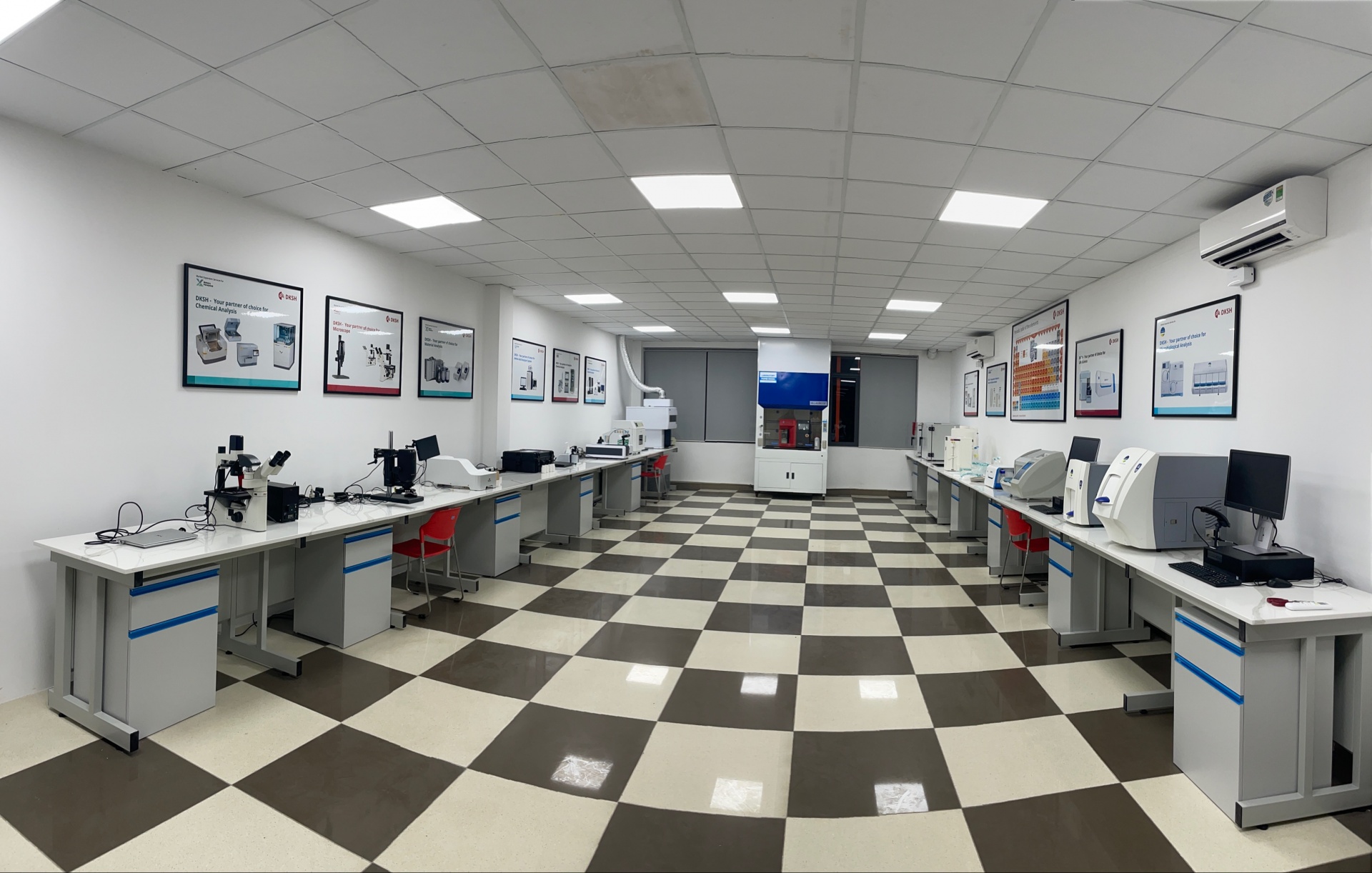The trends shaping healthcare across the Asian continent
This kind of breathalyser, which can help to diagnose diseases such as influenza, strep, staph, and many other pathogens just by one breath, has the potential to be an affordable and easy-to-use health tool for personalised screening and diagnosis – if successfully commercialised. This is just one example of how the healthcare industry has advanced with technology and innovation.
 |
| Phillip Wray, Vice president of Healthcare DKSH Vietnam |
Digitalisation has become even more tangible, especially during the past few challenging years. Healthcare companies have worked hard to embrace digital tools and technologies to be more agile and remain relevant under such circumstances.
DKSH is in a unique position which helps us identify four trends that are now shaping the healthcare industry in Asia.
The most visible transformation of healthcare during and post-pandemic is the adoption of digital health tools – telehealth, personal devices providing real-time access to care, social determinants of health databases, and cloud-based data storage solutions. These can help increase patient adherence, resulting in a much more effective course of treatment.
Wearables have shifted drastically to become popular health monitoring devices in recent years. In addition to providing real-time, accurate measurements and keeping track of body temperature, heart rate, and more, many companies are now racing to make the impossible possible and offer non-invasive continuous glucose monitoring wearables.
When such wearable devices are made available, capillary samples can be replaced, and nearly 9 per cent of the global population who have diabetes will have a better chance to conveniently diagnose, monitor, and manage their condition and treatment.
Secondly, digital patient support programmes (PSPs) have become increasingly important. To help our healthcare clients and partners address the rising need for digital PSPs, DKSH has been investing in developing a solution which allows our clients and partners to tailor the solution digitally to their specific needs at an affordable cost.
The solution enables a two-way engagement with patients to help solve any issues throughout their care journeys. It also enables them to interact with other stakeholders who will be critical in delivering cost-effective and high-quality care. In Vietnam, the solution has been implemented to better support patients with idiopathic pulmonary fibrosis (IPF) get better access to medication and treatment.
IPF is a chronic, irreversible, and progressive lung disease that causes scarring of the lungs. In some cases, the condition can be slowed by certain medications, whereas lung transplantations may be necessary for advanced cases.
Thirdly, in today’s digitalised healthcare system, we are surrounded by mountains of data linked to the emergence of AI. While the technology has been available for some time, the recent release of ChatGPT has made AI available to the masses. There is no doubt AI will have significant positive impacts on healthcare in areas such as diagnosis, tailored therapies, and economic impacts.
The use of AI use can speed up the drug development process. AI diagnostic solutions are already present in many countries, assisting medical professionals in identifying areas of concern during screening, such as cervical examinations and colonoscopies. This leads to earlier identification of illnesses as well as earlier intervention opportunities, which result in improved outcomes.
Applying AI across the huge amounts of data will also allow healthcare providers to gain much greater insights into all aspects of their operations. It will enable them to pick up trends faster, forecast demand more accurately, and identify which activities have the highest impact, which will all in turn help drive efficiency and improve outcomes. The advances we will see in the healthcare space in the next 3-5 years resulting from AI will be of considerable extent.
Nevertheless, it is important that every healthcare organisation remains responsible for data privacy, while harnessing the benefits of AI. Ethics and compliance must always be of utmost priority.
Finally, the sense of urgency for digital transformation in healthcare has notably increased over the last few years. This development is directly linked to the high demand for a workforce that is equipped with digital capabilities. Investing in reskilling and upskilling the current and future workforce will become critical to follow through with large-scale transformation goals and support new service delivery models.
Digitalisation is a driving factor of DKSH’s continuous evolution, and leveraging data and analytics with our digitally literate specialists will remain priorities in our own digital transformation.
 | DKSH supporting health innovation Vietnam is accelerating digital transformation in the healthcare sector. Phillip Alexander Wray, general manager of DKSH Pharma Vietnam, talked to VIR’s Tung Anh about how the company’s digital solutions are aiding this effort. |
 | DKSH enters new partnership with Wuxi NEST Biotechnology DKSH Business Unit Technology has begun a new partnership with Wuxi NEST Biotechnology, a manufacturer of plastic laboratory products in Australia, Indonesia, New Zealand, the Philippines, Singapore, Thailand, and Vietnam. |
 | DKSH expands in northern Vietnam with new laboratory On June 9, DKSH Business Unit Technology inaugurated the scientific instrumentation laboratory at Phenikaa University in Hanoi, making it the second facility of its kind in the country. |
 | DKSH tapping into healthtech with PSPhere for sustainable care With Vietnam strongly moving to achieve its net-zero emissions by 2050, innovation and digitalisation is a solution for the healthcare industry in this regard. Phillip Wray, head of Country Management, DKSH Vietnam, discussed with Bich Thuy the drivers of a sustainable healthcare industry and how the group can contribute to this effort. |
 | Lipton Teas partners with DKSH to boost presence in Vietnam Lipton Teas and Infusions has partnered with DKSH Business Unit Consumer Goods, a leading partner for companies seeking to grow their consumer goods business in Asia and beyond. |
What the stars mean:
★ Poor ★ ★ Promising ★★★ Good ★★★★ Very good ★★★★★ Exceptional
Related Contents
Latest News
More News
- PM outlines new tasks for healthcare sector (February 25, 2026 | 16:00)
- Ho Chi Minh City launches plan for innovation and digital transformation (February 25, 2026 | 09:00)
- Vietnam sets ambitious dairy growth targets (February 24, 2026 | 18:00)
- Masan Consumer names new deputy CEO to drive foods and beverages growth (February 23, 2026 | 20:52)
- Myriad risks ahead, but ones Vietnam can confront (February 20, 2026 | 15:02)
- Vietnam making the leap into AI and semiconductors (February 20, 2026 | 09:37)
- Funding must be activated for semiconductor success (February 20, 2026 | 09:20)
- Resilience as new benchmark for smarter infrastructure (February 19, 2026 | 20:35)
- A golden time to shine within ASEAN (February 19, 2026 | 20:22)
- Vietnam’s pivotal year for advancing sustainability (February 19, 2026 | 08:44)

 Tag:
Tag:



















 Mobile Version
Mobile Version